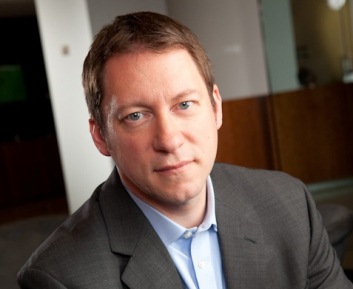Television Cameras Don't Shut Off Once Elections Are Over - Don Seaman

"The highest calling of broadcasting is to keep the keystone of freedom securely in place - the freedom of speech and of the press. Abraham Lincoln once said, 'Let the people know the facts and the country will be safe.' Whether it is about a local election, providing critical information during a storm, or uncovering government corruption, broadcasters … are united in their mission to inform the public, no matter the cost." – Gordon Smith, President and CEO, NAB
While it's become fairly commonplace for media outlets to scrutinize claims made by candidates during an election period or after a major speech (i.e., the State of the Union address), we tend to table our political concerns until we're poised to re-enter the voting booths. Well, local television stations are changing tactics to respond to growing constituent calls for greater accountability of their public servants.
Donating free airtime to politicians and doubling down on political coverage is just the beginning.
Hearst stations, for example, recently have said that they'll not only continue to air routine face-to-face discussion segments with elected officials and "watchdog-style" reports on their newscasts and websites, but more innovative political content as well. Their alliance with the Tampa Bay Times' Pulitzer-winning PolitiFact and "Truth-O-Meter" fact-checking systems will remain active despite being outside a campaign cycle.
In the words of PolitiFact Editor Bill Adair, "fact-checking is as important when politicians are governing as it is when they are campaigning."
Local television broadcasters are doing this for two very simple reasons:
1. They need to.
and
2. They are the best ones who can.
Recent NAB Distinguished Service Award winner newsman Bob Schieffer from CBS News explains why this is so important: "You cannot have a democracy unless people have that independently gathered version of events compared to what government is telling them. More and more it's going to be the broadcaster that is depended on for that accurate information. (It's) as important as the right to vote."
Professional journalists consider truth-seeking a major part of their calling to their industry. Schieffer goes on to pronounce that television, with investigative news coverage, devotion to local and powerful TV platform, is the single most important medium to do so. And as the newspaper industry continues to struggle, broadcast television would be wise to scoop up as many of these well-connected and talented local reporters to further bolster local television's newsgathering power.
The alternative is a choice between sensationalist bloggers and infotainment zealots. Bias has no place in real news, and that's why the professional journalists of broadcast television are so critical. They reveal the harsh truths, as well as draw attention to the civic triumphs that would otherwise go underreported.
As Americans, each of us has a stake in what goes on in every level of government. Local media does not operate outside of the reach of government – local reporters, editors, and producers are just as subject to government policy and pronouncement as any other citizen. They are all part of the community that they serve, and they stand committed to informing their neighbors about the intents, promises, and deliveries of their elected officials.
You don't need to go far to see why this is important to their communities. A quick spin through the usual online social media platforms will demonstrate not only the political polarization of people, but in a larger sense, the attention that ordinary citizens are paying to what's going on in government today. The difference between now and in times past is that a single voice can be very loud online – with much deeper impact than one person holding a picket sign in front of a politician's office.
Social media has empowered the people – and their online community – to pay much more attention to their offline communities. Local television broadcasters are also responding by providing the most powerful platform to hold politicians accountable to their constituents.
Politics don't end with elections, and neither does local broadcast television's civic responsibility to keep this all-important aspect of American life in the spotlight.
Don Seaman joined the TVB in January 2012 as Manager of Marketing Communications, where he is responsible for promoting and raising awareness of the TVB, and of Local Broadcast Television’s value propositions within the traditional and digital media industries. Don can be reached at don@tvb.org.
Read all Don's MediaBizBloggers commentaries at Local Matters.
Check us out on Facebook at MediaBizBloggers.com
Follow our Twitter updates @MediaBizBlogger
The opinions and points of view expressed in this commentary are exclusively the views of the author and do not necessarily represent the views of MediaBizBloggers.com management or associated bloggers. MediaBizBloggers is an open thought leadership platform and readers may share their comments and opinions in response to all commentaries.


